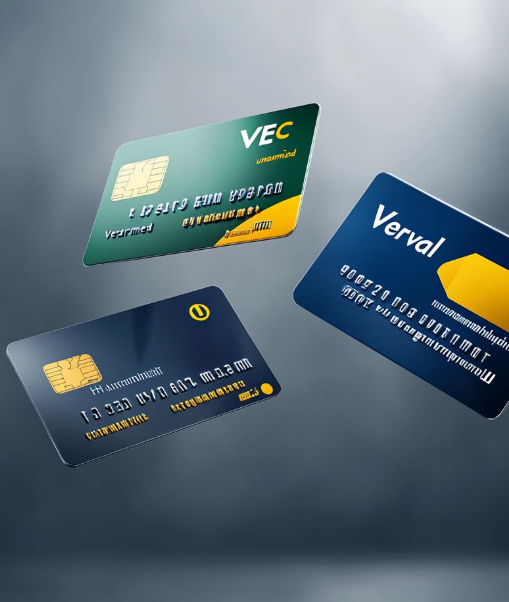Cryptocurrency exchanges serve as the foundation of the digital currency ecosystem, offering users a platform to buy, sell, and trade various cryptocurrencies. If you’re considering entering the world of crypto, understanding how exchanges work is essential. This guide explores the mechanics of crypto exchanges, their importance, and how to choose a reliable platform for your trading needs.
What Is a Crypto Exchange?
A cryptocurrency exchange is an online platform where users can exchange digital assets, like Bitcoin or Ethereum, for other cryptocurrencies or fiat money. Similar to traditional stock exchanges, crypto exchanges allow individuals to convert their fiat currency into digital currencies and vice versa, and facilitate the transfer of assets to digital wallets for safekeeping. To begin trading, users need to create an account on a crypto exchange, deposit funds, and then they can start trading.
How Do Crypto Exchanges Operate?
Crypto exchanges work by connecting buyers and sellers, enabling them to exchange assets seamlessly. When you place an order to buy or sell a cryptocurrency, the exchange matches your order with that of another user. The transaction is then completed, transferring the digital asset from one wallet to another. These platforms usually charge transaction fees, generating revenue from each trade that occurs.
In addition to basic buying and selling, exchanges provide various tools such as market analysis, charts, and different types of orders (like market, limit, and stop-loss orders) to help users make informed decisions.
Types of Cryptocurrency Exchanges
Cryptocurrency exchanges come in several forms, catering to different types of users. The most common types are:
Centralized Exchanges (CEX)
Centralized exchanges are the most commonly used platforms in the crypto space. These exchanges act as intermediaries, holding users’ funds and facilitating trades. Popular examples include Coinbase and Binance.
Decentralized Exchanges (DEX)
Decentralized exchanges operate without an intermediary, allowing for peer-to-peer trading. These platforms are more privacy-focused and typically offer greater security, although they may lack some features of centralized exchanges. Examples include Uniswap and SushiSwap.
Hybrid Exchanges
Hybrid exchanges combine features of both centralized and decentralized exchanges, aiming to offer the best of both worlds. These exchanges provide the privacy and security benefits of DEXs while also maintaining the liquidity and features of CEXs.
Centralized vs. Decentralized Exchanges: A Comparison
Understanding the key differences between centralized and decentralized exchanges is essential for any crypto trader.
Centralized Exchanges (CEX)
CEXs are managed by a centralized entity that facilitates trades and holds users’ funds.
Key Features:
- Custodianship: The exchange controls users’ funds.
- User Interface: Easy-to-use platforms suitable for beginners and advanced traders alike.
- High Liquidity: Users can quickly buy and sell at competitive prices.
- Wide Range of Services: Services like margin trading, staking, and futures trading are offered.
- Regulatory Compliance: These exchanges comply with KYC (Know Your Customer) and AML (Anti-Money Laundering) regulations.
Advantages:
- User-Friendliness: Simple to navigate with robust customer support.
- Liquidity: Fast trade execution with stable prices due to high liquidity.
- Advanced Features: Includes margin trading and futures contracts.
- Customer Support: Availability of various support options, including phone and live chat.
Disadvantages:
- Security Risks: Centralized control of funds makes exchanges a target for hackers.
- Privacy Concerns: KYC processes require personal information, limiting user privacy.
- Regulatory Risks: These exchanges may face scrutiny from regulators, which can affect operations.
Decentralized Exchanges (DEX)
DEXs operate without a central authority, using blockchain technology and smart contracts to enable direct peer-to-peer trading.
Key Features:
- Non-Custodial: Users maintain control of their assets throughout the trading process.
- Privacy: Trades are conducted anonymously without requiring KYC.
- Smart Contracts: Automated agreements that ensure transparency and reduce trust requirements.
- Community Governance: Many DEXs are governed by their user community via decentralized protocols.
Advantages:
- Security: Users retain full control over their assets, reducing the risk of hacking.
- Privacy: No need to provide personal information, offering enhanced privacy.
- Censorship Resistance: DEXs are harder to regulate and shut down due to their decentralized nature.
- Decentralization: Reduces reliance on central entities, supporting the core principles of blockchain technology.
Disadvantages:
- Lower Liquidity: Often have less liquidity compared to centralized platforms, which can lead to higher slippage.
- Complexity: Interfaces can be more difficult to use, especially for beginners.
- Limited Features: Many DEXs lack advanced features like futures trading and margin trading.
- Smart Contract Risks: Vulnerabilities in smart contracts can lead to potential exploits.
How to Choose the Right Crypto Exchange
Selecting the right cryptocurrency exchange is crucial for a smooth and secure trading experience. Here are some important factors to consider when choosing a platform:
1. Security
Security should always be your top priority. Look for exchanges that offer features such as:
- Two-Factor Authentication (2FA): Adds an extra layer of protection to your account.
- Cold Storage: Ensures the majority of funds are stored offline, minimizing the risk of hacks.
- Insurance: Some exchanges provide insurance to protect against hacks or breaches.
- Regular Audits: Ensure that the exchange undergoes regular security audits.
2. Fees
Understanding the fee structure is essential to manage your trading costs. Consider the following types of fees:
- Trading Fees: Fees charged per trade, often varying for makers (liquidity providers) and takers (liquidity consumers).
- Withdrawal Fees: Fees for transferring funds from the exchange to your personal wallet.
- Deposit Fees: Some exchanges charge fees for depositing funds, particularly for fiat deposits.
3. User Experience
A good user interface makes trading easier. Look for:
- Ease of Use: The platform should be intuitive, with clear instructions and a user-friendly design.
- Mobile App: If you prefer trading on the go, check if the exchange offers a robust mobile app.
- Customer Support: Access to responsive customer service can resolve issues promptly.
4. Liquidity
A high liquidity level is crucial for efficient trading. Look for exchanges with high trading volume and a deep order book, which ensure minimal slippage and better trade execution.
5. Reputation
Research the exchange’s reputation by reading user reviews, checking for any past security breaches, and assessing its overall reliability.
6. Regulatory Compliance
Choose exchanges that follow regulations, particularly those involving anti-money laundering (AML) and Know Your Customer (KYC) procedures.
7. Advanced Features
If you’re an experienced trader, look for exchanges that offer advanced features like margin trading, staking, or futures contracts.
Popular Crypto Exchanges
Here are some of the most well-known cryptocurrency exchanges:
- Coinbase: Ideal for beginners with its easy-to-use interface, strong security, and educational resources.
- Binance: One of the largest exchanges offering high liquidity, advanced trading features, and a robust educational platform.
- Kraken: Known for its security and regulatory compliance, Kraken offers a wide range of cryptocurrencies and low fees.
- Gemini: A regulated exchange focused on security and compliance, ideal for both beginners and professionals.
- Bitfinex: Known for advanced trading features and high liquidity, Bitfinex is suited for professional traders.
- OKX: Offers a range of trading options and financial services, with strong security and competitive fees.
- KuCoin: A growing exchange that supports numerous cryptocurrencies and offers additional services like staking.
- Bybit: Specializes in derivatives and futures trading with high liquidity and advanced charting tools.
Conclusion
Crypto exchanges play a critical role in the digital currency ecosystem, facilitating the buying, selling, and trading of cryptocurrencies. When choosing the right exchange, consider factors such as security, fees, liquidity, and user experience. With the right platform, you can ensure a safe and efficient trading experience, whether you’re a beginner or a seasoned trader.













